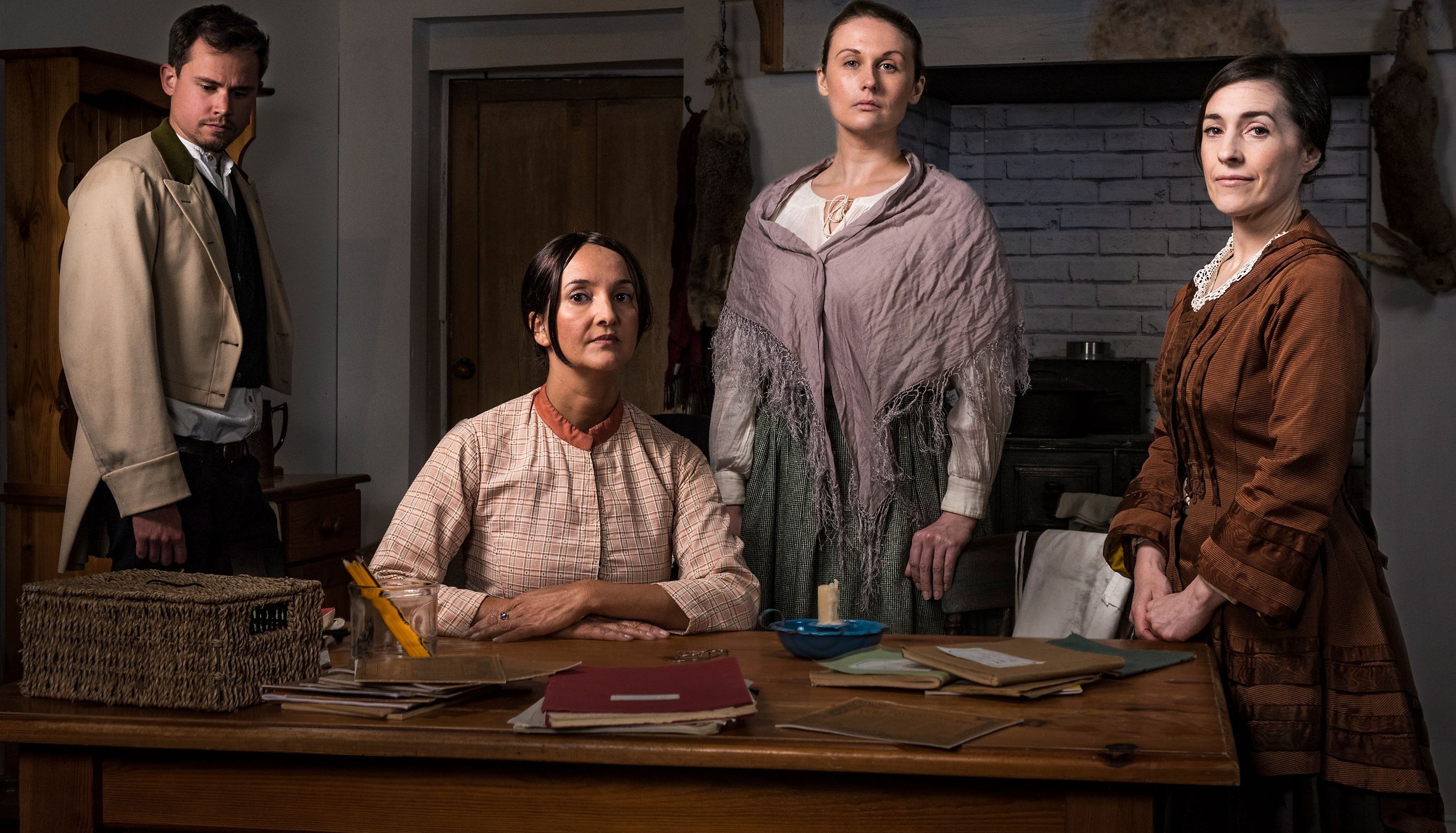Brontë review: A confused production lacking emotional impact
After spending much of this year studying Charlotte Brontë, the opportunity to see Brontë at the Loft Theatre was one I could not turn down. The possibility of seeing the lives of one of the most famous families from the British literary canon coming to life on stage promised to be an unforgettable experience. Unfortunately, unforgettable seems to be the correct term to use, but for all the wrong reasons. This production, directed by Martin Cosgrif, lacked the magic and mystery I had hoped for.
The play opens with a pre-set, leaving one feeling confused rather than intrigued; the actors enter wearing leggings and a vest top, out of place with the historically accurate set. Once the play began, however, it became clear that this was an attempt on the director’s part to bring out the metatheatricality of the play which Polly Teale’s writing tries so hard to convey. The actors discuss the Brontës with the repeated notion of ‘how did they do it?’ dominating their dialogue, making a point about their position as Victorian women, denied access to literature by a heavily patriarchal society. Yet after the first scene this notion was forgotten; the audience was left behind in a weak transition from self-aware actor to Victorian writer. Even the accents, which morphed from RP to (supposedly) Yorkshire accents, diminished this transition and left the audience confused about what the purpose of that first scene really was.
This production lacked the magic and mystery I had hoped for
Not only were the Yorkshire accents weak, ruining the realism the set hoped to achieve, but the attempt to bring to life Charlotte’s experience in Belgium was weakened by the poor French/Flemish accent of Mark Crossley. Rather than leading the audience to realise the intense difficulty Charlotte faced in struggling to keep the promise she had made aged 12 never to marry, the audience were left sniggering at Crossley’s pronunciation of “passion”. Whilst this was a beautiful touch to a story of love and faith, the accent diminished the potential impact on the audience.
As well as the pre-set, which melded multiple stories into one, the centre of the stage (an empty space between the Brontës’ kitchen and study) was used to bring to life characters from Wuthering Heights and Jane Eyre, as well as stories the siblings made up during their childhood. While the appearance of Cathy provided a poignant analysis of Emily’s emotional state, the emotional impact of these appearances was ruined by the later appearance of Charlotte’s mysterious Bertha. The costume – a red nylon dress more suitable to the 1950s than the 1850s and a black curly wig reminiscent of Charles II – demeaned the emotional conflict experienced by Charlotte. Her personal debate over passion and marriage was turned into a farcical performance of carnal desire. Perhaps the budget had not stretched to cover Bertha’s costume, and was instead invested in an incomplete set.
Polly Teale does nothing to repair Emily’s status as the ‘forgotten one’
As much as one expects the play to draw heavy autobiographical connections between each author and their characters, the multi-roling, while dramaturgically a sound decision, meant there was occasionally difficulty in separating the writer from the character as the transitions were almost too rapid. Branwell also playing Rochester, for example, became confusing and the lack of costume indication that these were separate characters only added to the difficulty of interpreting what was happening on stage.
Julia Findlay as Anne Brontë certainly gave the best performance; her strong communication of Anne’s position as peacemaker between the continuously clashing Emily and Charlotte gave more depth to the overbearing tension between the two more famous sisters. Yet Anne was forgotten, just as she states in the opening scene; she describes herself as the “forgotten one” and Teale does nothing to repair this. Anne is left behind in a play that is so concerned with the potential for women to be forgotten in Victorian society, and ends up following her sisters and brother around the stage like a child. Findlay’s portrayal of Anne’s illness should be commended; rather than the over the top coughing seen by Emily (Karen Scott), she gave Anne’s final visit to the seaside the emotional impact this play was crying out for.
Brontë runs at the Loft Theatre until Saturday 16th June.

Comments